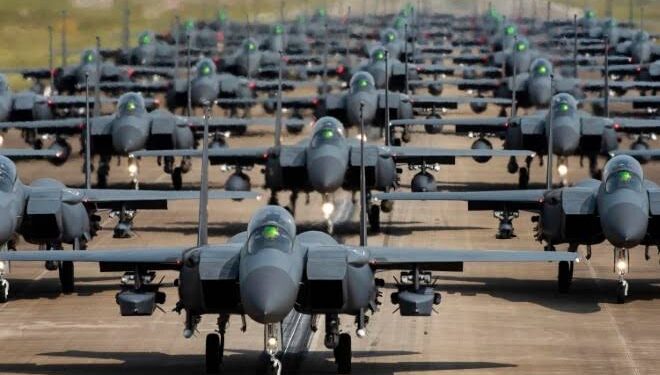By Lucy Adautin
On Monday, the United States and South Korea began their significant annual joint military drills, according to Seoul.
This year’s drills include new components designed to address the threats posed by nuclear-capable North Korea, including strategies for combating cyberattacks.
The Ulchi Freedom Shield exercise will continue until August 29, featuring simulations that aim to address contemporary threats in various domains, such as North Korean missile launches and GPS disruptions, according to Seoul’s Joint Chiefs of Staff.
The exercises will boost the allies’ “capability and posture to deter and defend against weapons of mass destruction”, the military added.
This year’s drills will see approximately 19,000 South Korean troops engaged across land, sea, air, and also in the cyber and space realms, according to the defense ministry, which did not disclose specifics about the US involvement.
Recently, Pyongyang has launched thousands of balloons carrying waste across the border and attempted to disrupt South Korean Global Positioning System (GPS) signals. This move is part of its opposition to balloons sent by South Korean activists carrying anti-regime messages.
In response, Seoul’s city government will conduct concurrent civil defense exercises aimed at preparing for potential threats from trash balloons and North Korean drone attacks.
“We are currently facing the most reckless and irrational North Korean provocations and threats in the world,” South Korean President Yoon Suk Yeol said at a cabinet meeting Monday, according to his office.
“In recent years, they have not hesitated to launch GPS jamming attacks and make low-grade provocations such as launching trash balloons.”
US-South Korea drills typically infuriate the North, which views them as rehearsals for invasion and has frequently conducted weapons tests in retaliation.
On Sunday, North Korean state media criticized the ongoing drills as “dangerous and grave.”
Last year, North Korean media had warned that the exercises could lead to a “thermonuclear war,” and in response, Pyongyang fired several cruise and ballistic missiles.
Kim Myung-soo, head of Seoul’s Joint Chiefs of Staff, stated last week that Pyongyang might use the exercises as an excuse for deceptive and sudden provocations.
He instructed troops to “closely monitor and analyze the activities at the DMZ” and to “retaliate immediately if provoked.”
The United States, South Korea’s primary security ally, maintains around 28,500 troops in South Korea to defend against the nuclear-armed North. The two nations have a long history of conducting joint military exercises.




































